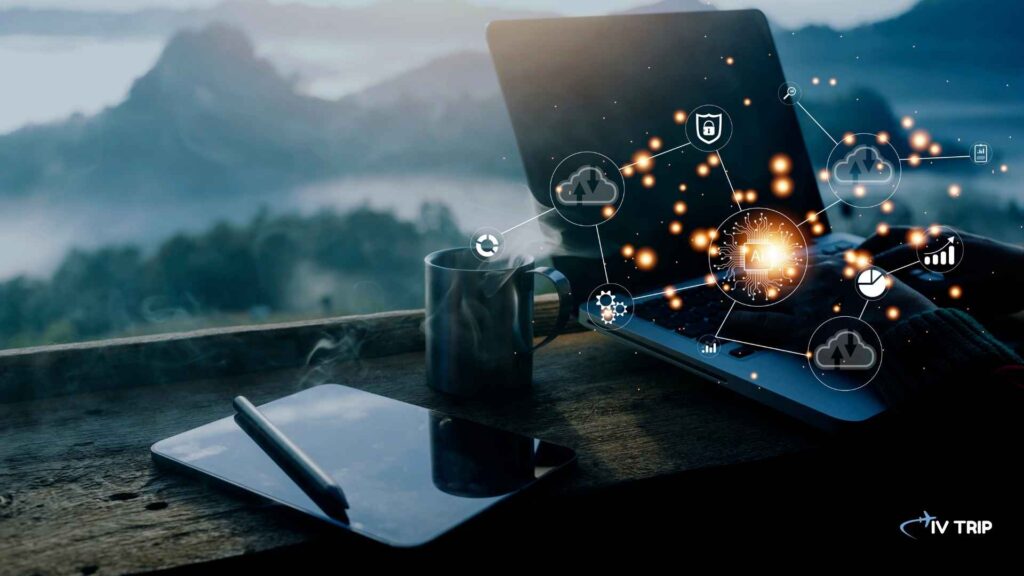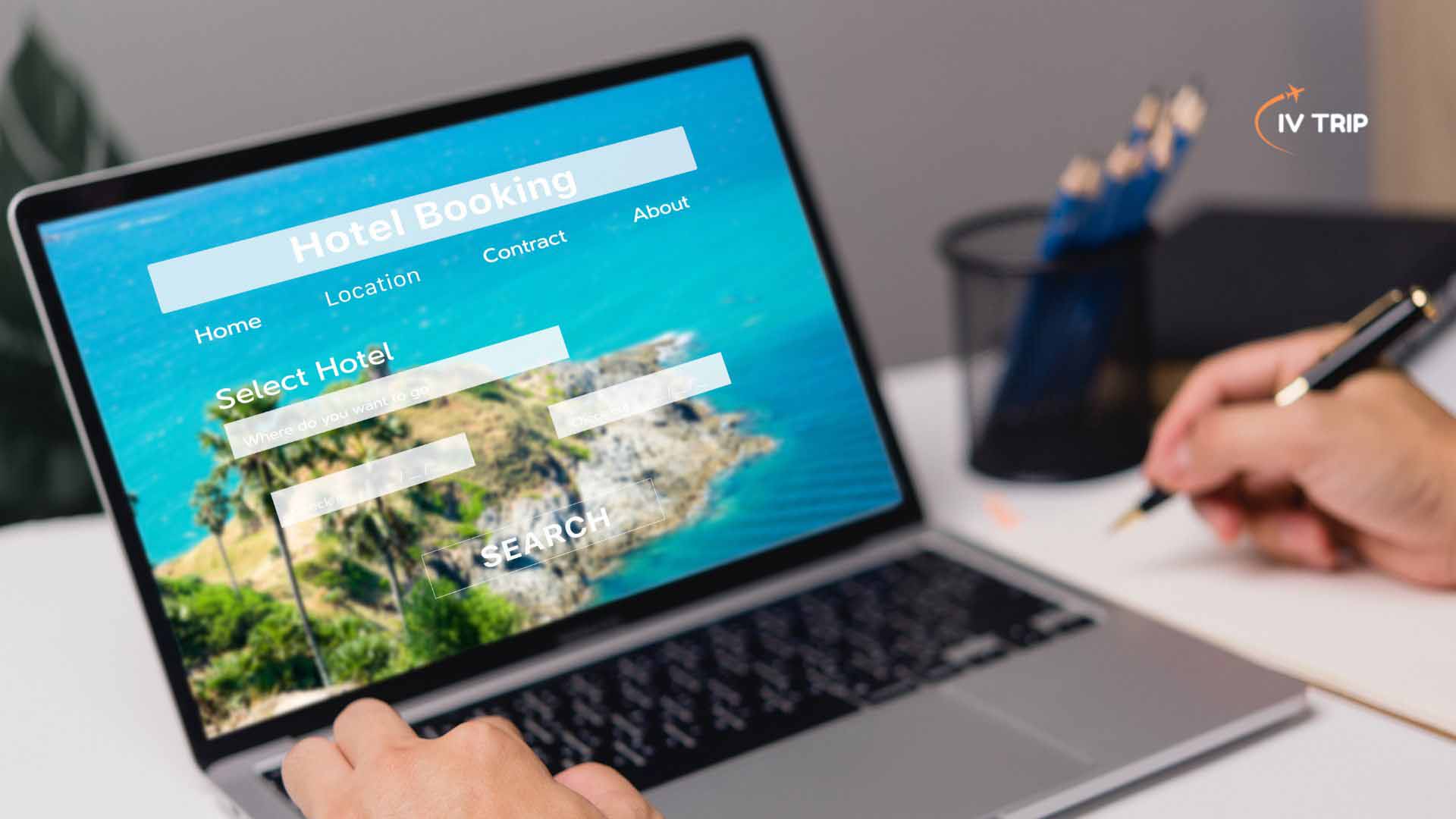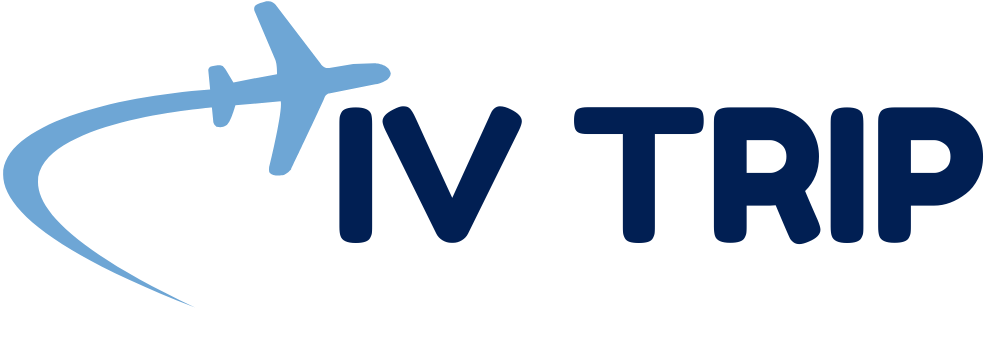AI and Chatbots in Travel: Enhancing Customer Service

The travel industry is undergoing a rapid digital transformation, with AI in travel industry emerging as a powerful driver of better customer experiences. Modern travelers expect personalized, instant service – and travel agencies are using AI-powered tools and chatbots to deliver exactly that.
From automating routine tasks to offering 24/7 assistance, AI is reshaping how agencies serve customers. This article explores how AI customer service and travel chatbots are revolutionizing the travel sector, boosting efficiency and improving satisfaction.
The Rise of AI in Travel Industry
Artificial intelligence is quickly becoming integral to the travel industry. Analysts predict that by 2028, the global AI travel market will exceed $1.2 billion, with a compound annual growth rate of over 16%. Industry reports show that about 80% of travel companies plan to deploy AI to improve customer experiences.
AI enables hyper-personalization by analyzing traveler data (preferences, history, social media) to recommend flights, hotels, and tours tailored to each customer. In short, AI helps agencies deliver more personalized travel suggestions, increasing customer loyalty and satisfaction.
Crucially, AI also automates and optimizes processes. For example, intelligent pricing engines continuously adjust offers based on demand, and AI-driven scheduling tools build customized itineraries from a passenger’s budget and interests. According to Statista, AI could automate up to 85% of travel industry customer interactions by 2030.
This shift means more reservations, changes, and FAQs can be handled automatically, freeing agents for complex tasks. Moreover, cloud-based travel platforms now integrate AI and machine learning to deliver predictive pricing and personalized itineraries. In a competitive market, agencies using AI-driven travel agency software gain a clear edge by operating faster and smarter.

Travel Chatbots: Transforming Customer Service
One of the most visible AI innovations in travel is the rise of chatbots and virtual assistants. Travel chatbots are automated conversational agents that use natural language processing (NLP) to answer travelers’ questions, make bookings, and handle routine tasks.
Unlike human agents, chatbots are available 24/7 and can instantly respond to common inquiries like flight schedules, hotel availability, or visa requirements. For example, an AI chatbot on a travel website can guide a user through booking steps or provide immediate info on flight status, freeing live agents to focus on more complex customer needs.
Key features of travel chatbots include:
- 24/7 Multilingual Support: Chatbots never sleep. They reply instantly anytime, in multiple languages, ensuring no customer query goes unanswered.
- Booking Assistance: Many chatbots can directly handle reservations. Platforms like Flow XO and Verloop.io allow integration of secure payments so travelers can book flights or hotels right in the chat window.
- Dynamic Responses: Advanced chatbots use machine learning to improve over time. They learn from each conversation, enabling more natural dialogue and personalized recommendations on popular tours or nearby attractions.
- Integration with Systems: Chatbots connect with agency booking systems and GDS APIs to provide live availability and pricing. For instance, a chatbot can check flights and book them in real time, updating the customer instantly.
In practice, travel chatbots act like always-on travel agents. They handle FAQs, cancellations, check-ins, and more – often via the traveler’s preferred channel (website, WhatsApp, Facebook Messenger, etc.). For example, AI-driven virtual assistants on airline or hotel apps can address over 30% of routine queries within minutes, significantly improving the user journey. By automating these tasks, chatbots help create a seamless support experience that boosts traveler satisfaction.
Benefits of AI Customer Service in Travel
AI-powered customer service delivers many concrete advantages for travel agencies:
- Round-the-Clock Support and Faster Responses: Chatbots operate 24/7, so travelers get instant answers day or night. No matter the time zone, AI ensures agencies never miss a customer. Firms using AI report much shorter response times – for instance, one SME travel agency cut its average reply time from 5 minutes to just 30 seconds after deploying a chatbot. This immediate service builds trust and satisfaction.
- Enhanced Personalization: By analyzing customer data and preferences, AI tailors interactions to each traveler. Chatbots can suggest personalized itineraries (favorite airlines, hotels, or tour types) based on past behavior. Such customization makes recommendations more relevant, delighting customers and encouraging repeat bookings. In fact, surveys show about 68% of travelers welcome AI-driven travel suggestions during planning.
- Operational Efficiency and Cost Savings: Automating routine tasks frees human agents to handle complex issues. AI can automatically generate quotes, manage bookings, and update itineraries without manual work. This not only speeds up operations but also reduces errors. According to industry analysts, incorporating AI can cut support costs and boost agent productivity. One case study found an agency using IvTrip’s AI chatbot saw a 35% reduction in operational costs while resolving 90% of queries within minutes.
- Data-Driven Insights: Every chatbot interaction is data. By collecting questions and feedback, AI systems uncover traveler trends and pain points. These insights inform service improvements and marketing. For example, analyzing chat logs might reveal peak demand for a particular destination or common booking obstacles. Travel companies can then proactively adjust offers or create helpful content. Over time, AI agents “learn” from data to make the service smoother and more relevant.
- Increased Conversions and Upselling: Chatbots not only assist customers but also drive sales. When a traveler books a flight, the chatbot can suggest add-ons like hotel upgrades, local tours, or insurance. This capability for in-chat upselling opens new revenue streams. Faster bookings and instant problem resolution also mean fewer drop-offs – studies report higher booking completion rates and customer trust when AI is used effectively.
Together, these benefits make AI-powered customer service a game-changer. Agencies report higher satisfaction scores and loyalty. For example, after integrating an AI chatbot and dynamic pricing engine, a travel firm saw a 40% jump in customer satisfaction. As Roland Berger notes, AI helps travel companies meet rising traveler expectations for convenience and personalization, leading to “operational excellence and outstanding customer experiences”.

Chatbot Solutions for Travel Agencies
Travel agencies have many chatbot solutions available. There are platforms (such as Flow XO, Verloop.io, Freshchat, Engati and more) that specialize in building travel chatbots without coding. These solutions typically offer:
- Omni-channel deployment: Bots can be added to websites, booking portals, and messaging apps (WhatsApp, Facebook Messenger, etc.), ensuring travelers can connect on their preferred channel.
- Multi-language support: The best travel chatbots handle dozens of languages, letting agencies serve international clients. For example, Verloop.io supports 20+ languages and even voice interactions.
- Payment and booking integration: Advanced chatbots integrate secure payment gateways. Flow XO, for instance, can process ticket or hotel payments directly in the chat.
- Analytics and handoff: Platforms include dashboards to track chatbot performance and escalate to human agents when needed, ensuring a smooth user experience.
Aside from third-party tools, specialized travel management systems also integrate AI chatbots. IvTrip’s software, for example, includes an AI assistant module for travel agents. By connecting the chatbot to the booking engine, agencies using IvTrip can offer automated booking queries and cancellations via chat. In practice, this means travelers can book flights, check itineraries or ask about visa requirements through a simple conversation window.
Implementing Chatbot Solutions: Agencies should start by identifying high-volume support topics (e.g., booking changes, refund policies). Next, choose a chatbot platform that matches the agency’s scale and budget. Many SaaS solutions allow quick setup of travel-specific bots.
It’s important to seamlessly integrate the bot with existing travel software and GDS connectors, so it has live data. Finally, train the bot on common travel dialogues and let it start handling inquiries, while monitoring and refining its responses over time.
How AI-Powered Chatbots Improve Customer Service for Travel Agencies
Travel agencies see dramatic service improvements when they deploy AI chatbots. Below are key ways chatbots transform customer service:
- Instant Issue Resolution: Chatbots immediately answer common questions (e.g. “What’s my flight status?” or “Can I change my hotel dates?”). This reduces customer frustration. Instead of waiting hours for an email or callback, travelers get real-time help with no queues.
- Personalized Recommendations: By leveraging AI, chatbots can offer custom suggestions. For instance, after a traveler books a flight, the chatbot might suggest a hotel in their destination that matches their past preferences. These timely, personalized touches delight customers and make the service feel more human.
- Multilingual Support: Many travel customers speak different languages. Modern chatbots automatically detect language and respond accordingly, breaking down barriers. An agency can thus serve global clients without needing multilingual staff, ensuring seamless support for travelers worldwide.
- 24/7 Availability: AI chatbots never take breaks. They handle inquiries at midnight or during holidays, unlike limited human teams. This round-the-clock support means someone is always available to help – an essential factor in travel, where issues often happen outside normal business hours.
- Efficient Workflows for Agents: By handling repetitive queries, chatbots let human agents focus on complex cases. Agents no longer get bogged down with standard FAQs, so they can invest time in high-value service (VIP customers, unusual requests). This hybrid approach increases overall productivity.
- Higher Booking Success: Quick bot responses keep travelers engaged. Instead of abandoning a booking due to a small question, customers get answers and proceed to purchase. As a result, agencies often see higher conversion rates after implementing chatbots.
- Trust and Satisfaction: When routine problems are fixed instantly, customers rate the service higher. Surveys suggest that fast, accurate support significantly raises customer satisfaction scores. In one case, a travel firm integrating chatbots saw customer satisfaction rise by 40%.
In summary, AI chatbots streamline support and personalize it. They create a virtuous cycle: faster responses and smarter recommendations make travelers happier, which in turn boosts loyalty and sales. This is why an AI-empowered customer service strategy is critical for modern travel agencies.

Implementing AI and Chatbots in Travel Agencies
Getting started with AI and chatbots involves a few steps:
Identify Your Needs: Analyze your support tickets and customer feedback to find bottlenecks. Are you overwhelmed by flight status inquiries, booking changes, or general FAQs? Determine which tasks could be automated first. For example, if late-night booking questions are common, a chatbot could handle those round-the-clock.
Choose the Right Solution: Select an AI travel software or chatbot platform tailored for the industry. Many travel management systems (like IvTrip) now include built-in chatbots and pricing engines. Alternatively, third-party chatbot builders offer plug-and-play integrations. Ensure the solution connects with your booking engine (GDS/APIs) and database for real-time data.
Integrate Seamlessly: Work with developers or vendors to embed the chatbot into your website, app, or messaging channels. The bot should access your inventory, pricing, and CRM systems. It’s vital that the transition between chatbot and human agent is smooth; for complex queries, the bot should hand off to a live agent with full context.
Train Your Team: Even with automation, your staff needs orientation. Train agents on how the chatbot works and let them review chatbot logs. They should learn to craft clear answers that the AI can use. Encourage agents to handle bot exceptions and continue the conversation after handoff. Training ensures the tech works well with your service model.
Monitor and Improve: Use analytics dashboards to track chatbot interactions. Monitor metrics like resolution rate, handoff frequency, and customer satisfaction. Continuously refine the chatbot’s knowledge base and responses based on real user questions. With time, AI will learn common patterns and improve accuracy, further enhancing service quality.
Following these steps helps agencies smoothly adopt an AI-powered service. As one Implevista guide explains, integrating AI tools (like chatbots or dynamic pricing) must align with your workflow and goals. Start with a pilot on high-impact areas, then expand once the benefits become clear. Over time, this strategic approach ensures AI delivers tangible value – lower costs and happier travelers.
AI and chatbots are no longer futuristic concepts for travel agencies – they are practical tools that elevate customer service today. By automating routine inquiries, providing 24/7 support, and delivering personalized recommendations, AI-powered chatbots transform how agencies interact with travelers. The result is faster response times, higher satisfaction, and stronger loyalty.
Travel companies that leverage AI in the travel industry gain a competitive advantage. For example, firms integrating IvTrip’s AI chatbot and pricing engines reported up to 40% higher satisfaction and 35% cost savings. Such case studies underscore how smart travel software can turn AI into profits and repeat business.
If you’re ready to bring these benefits to your agency, contact IvTrip today and explore our travel software solutions. Our all-in-one platform unifies bookings, CRM, finance, and AI chat capabilities so you can focus on serving customers. Or, to learn more about travel tech, subscribe to our IvTrip Blog and check out posts like Artificial Intelligence in Travel Agency Software.
Embrace AI-powered chatbots now to streamline your operations and delight your customers – the future of travel service is here.

FAQs
Q: What is AI in the travel industry?
A: AI in the travel industry refers to using artificial intelligence technologies (like machine learning and NLP) to automate and improve travel services. This includes virtual assistants, automated booking systems, dynamic pricing, and personalized recommendations. AI helps agencies handle tasks (such as answering queries or planning itineraries) more efficiently while offering tailored travel experiences.
Q: What are travel chatbots?
A: Travel chatbots are AI-driven virtual assistants that communicate with travelers through chat interfaces. They understand natural language queries and can handle common tasks like searching flights, making reservations, answering FAQs about visa rules or baggage, and even processing payments. By being available 24/7 on websites or apps, chatbots ensure travelers get instant support anytime.
Q: How do AI chatbots improve customer service for travel agencies?
A: AI chatbots improve service by providing instant, personalized support around the clock. They reduce wait times and handle routine questions, which frees human agents to focus on complex requests. Chatbots can tailor travel recommendations based on customer data, upsell complementary services, and handle multiple customers simultaneously. In one case, deploying a chatbot cut response times from minutes to seconds and increased online bookings.
Q: Can chatbots handle multiple languages?
A: Yes. Modern AI chatbots often support dozens of languages. Travel agencies operate globally, so multilingual bots ensure that customers around the world get assistance in their native language. This broadens your customer reach and improves satisfaction for non-English speaking travelers.
Q: Are travel chatbots available 24/7?
A: Absolutely. Unlike human teams, chatbots are always online. Whether a customer has a question at midnight or during a holiday, the chatbot can respond immediately. This 24/7 availability is a key advantage, as it ensures no booking or query goes unattended, which boosts customer trust.
Q: Do travelers prefer AI chatbots over human agents?
A: Many travelers appreciate the quick responses and convenience of chatbots. Surveys show that a majority of travelers are comfortable receiving AI-driven suggestions and support. For routine inquiries, an AI bot can be faster and more consistent. However, human agents are still preferred for complicated issues. The best approach combines both: chatbots handle the bulk of simple queries, while humans take on the complex cases, leading to higher overall satisfaction.
Q: What features should a travel chatbot have?
A: Key features include natural language understanding (to interpret questions), live booking integration (to access real-time flight/hotel data), payment processing (for direct bookings), multilingual support, and analytics (to track interactions). It’s also important for the chatbot to hand off to a human when needed. Many solutions today offer drag-and-drop design so agencies can customize chatbot dialogs without coding.
Q: Can I integrate a chatbot into my existing travel software?
A: Yes. Many chatbot platforms can be embedded into websites, mobile apps, or messaging channels and linked to your backend systems. You can also work with a travel software provider like IvTrip, which offers built-in chatbot modules. Integration typically involves connecting the bot to your booking engine (for live flight/hotel info) and CRM. Once integrated, the chatbot will synchronize with your existing booking and data flow.
Q: How much does an AI travel chatbot cost?
A: Costs vary by provider and features. Some basic chatbot builders offer free or low-cost plans (e.g. for small websites or limited queries). Enterprise travel chatbots with advanced AI capabilities, multilingual support, and integrations typically require a subscription fee or custom development. However, the ROI can be high: agencies often recoup costs through saved labor, higher bookings, and improved customer retention.
Q: What is the future of AI customer service in travel?
A: The trend is clear: AI will handle an increasing share of travel service tasks. Analysts predict that by 2030, about 85% of travel customer interactions could be automated. Future developments include even more natural conversational bots, voice assistants (for phone or device queries), and AI agents that can handle complex multi-step bookings. Travel companies not adopting AI risk falling behind in service quality. By investing in AI and chatbots now, agencies set themselves up for sustained growth and happy customers.

